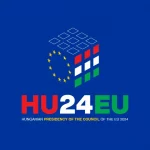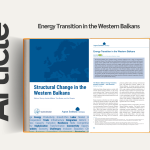The relationship between the United States (US) and the countries of the Western Balkans has long been a defining factor for stability, democratisation, and Euro-Atlantic integration in the region. Since the conflicts of the 1990s, the US has played a critical role in conflict resolution, state-building, and security guarantees, while also encouraging political reforms and economic modernisation. In parallel, the Western Balkans’ European perspective has been closely linked to US support for the enlargement process, transatlantic cooperation, and the promotion of democratic values.
At the same time, the global and regional context is evolving rapidly. Russia’s ongoing aggression against Ukraine has sharpened geopolitical divides, while China’s growing economic footprint in Southeast Europe has added further complexity. In this environment, the Western Balkans remain a strategic testing ground for the credibility of Western engagement, and the US–EU partnership is central to addressing both opportunities and challenges in the region. Yet, as the second Trump administration continues to challenge the global order and favour a protectionist approach both to foreign and economic policy, this relationship is put under increased pressure. The ambivalent and, at times, hostile messages coming from Washington should encourage European countries to have a more principled and coordinated approach to the US – one that does not follow American policies blindly.
In light of these changes, how do Western Balkan countries view their bilateral relations with the US in 2025? And what are their expectations for future cooperation? These are the themes explored in TEPSA’s latest book: “The United States and the Future of Europe: Views from the Capitals”, a volume which looks at 40+ national perspectives from across Europe, edited by Michael Kaeding, Johannes Pollak, and Paul Schmidt. How can recent experiences from the Western Balkans help us navigate this pan-European debate?
To discuss this question, TEPSA and the Institute for Development and International Relations (IRMO) will host an online public debate on Wednesday, 15 October from 10:00 to 11:30 am CET.
Speakers:
- Irena Pandeva, Professor, Ss. Cyril and Methodius University
- Sava Mitrović, Researcher, European Policy Centre (CEP)
- Danijela Jaćimović, Professor, University of Montenegro
- Hrvoje Butković, Scientific Advisor, Institute for Development and International Relations (IRMO)
- Moderator: Paul Schmidt, Secretary-General, Austrian Society for European Politics, and editor of the TEPSA Book “The United States and the Future of Europe: Views from the Capitals”
To register for our online event, please click here.






